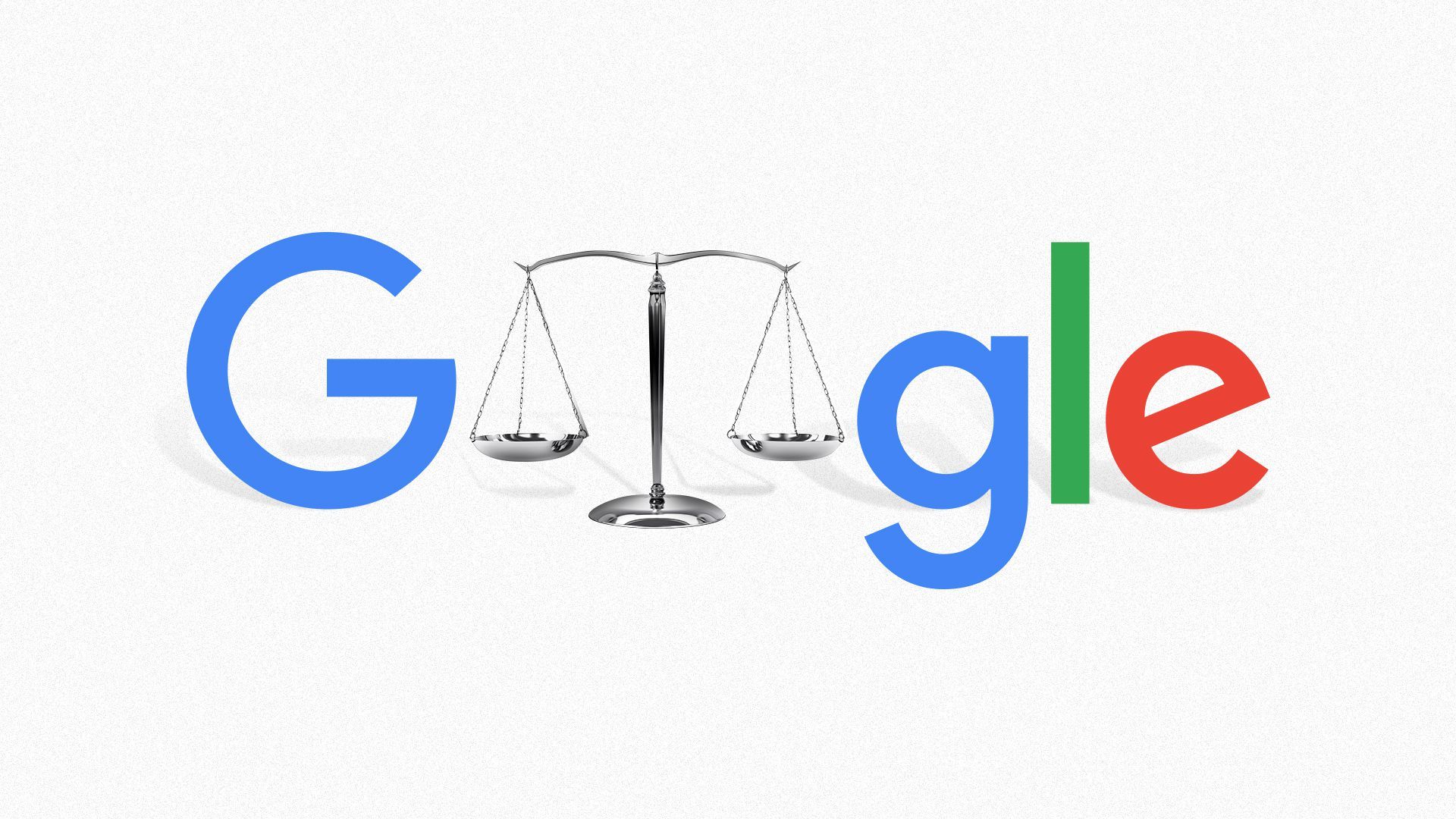More than 30 states sue Google, alleging illegal search monopoly
Add Axios as your preferred source to
see more of our stories on Google.

Illustration: Aïda Amer/Axios
A bipartisan coalition of attorneys general from 38 states and territories sued Google Thursday, accusing the company of a multi-pronged effort to maintain an illegal monopoly.
Why it matters: It's the third antitrust lawsuit against Google in as many months, setting up the company for legal battles on multiple fronts.
Driving the news: The lawsuit, led by Colorado's Democratic attorney general and Nebraska's Republican attorney general, takes aim at a range of Google practices, including:
- How Google disadvantages rival specialized search companies like Yelp or TripAdvisor by favoring its own results.
- Using those same tactics to extend its search-related monopolies into emerging technology like smart speakers.
The intrigue: The AGs ask the court to halt the conduct by taking measures up to and including breaking up the company by forcing it to split off certain segments.
What they're saying: “Our economy is more concentrated than ever, and consumers are squeezed when they are deprived of choices in valued products and services," Colorado Attorney General Phil Weiser sad in a statement.
- "Google’s anticompetitive actions have protected its general search monopolies and excluded rivals, depriving consumers of the benefits of competitive choices, forestalling innovation, and undermining new entry or expansion."
The other side: "We know that scrutiny of big companies is important and we’re prepared to answer questions and work through the issues," Adam Cohen, Google's director of economic policy, wrote in a blog post Thursday. "But this lawsuit seeks to redesign Search in ways that would deprive Americans of helpful information and hurt businesses’ ability to connect directly with customers."
The big picture: A Texas-led lawsuit Wednesday accused Google of illegal tactics in the digital advertising market, while a Justice Department lawsuit in October focused on Google's contracts to secure its search engine as the default in devices and browsers.
- The Michigan and Wisconsin AGs' offices filed to join the DOJ suit Thursday. A slate of 11 slates with Republican AGs were part of that suit when it was filed, and California signed onto it last week.
What's next: The case was filed in D.C. District Court. The AGs seek for it to be consolidated with the DOJ's case.

